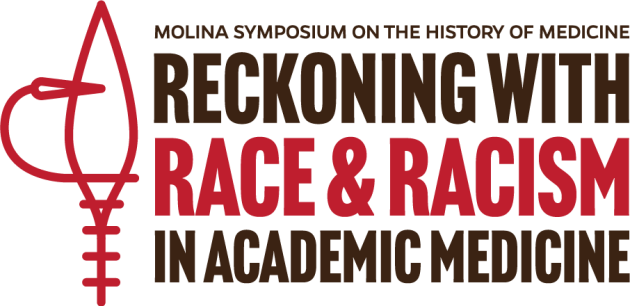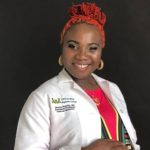Speakers

Speaker Biographies

David A. Acosta, MD, is Chief Diversity and Inclusion Officer for the Association of American Medical Colleges. A family medicine physician, Dr. Acosta joined the AAMC from the University of California (UC), Davis, School of Medicine, where he served as senior associate dean for equity, diversity, and inclusion and as associate vice chancellor for diversity and inclusion and chief diversity officer at UC Davis Health System. He previously served as the first chief diversity officer at the University of Washington (UW) School of Medicine, where he established the Center for Equity, Diversity, and Inclusion and the Center for Cultural Proficiency in Medical Education. Dr. Acosta earned his bachelor’s degree in biology from Loyola University and his medical degree from the UC Irvine School of Medicine. He completed his residency training at Community Hospital of Sonoma County in Santa Rosa, California — an affiliate of the UC San Francisco School of Medicine — and a faculty development fellowship at the UW Department of Family Medicine.

Ugochi T. Aguwa is a current third-year medical student at Johns Hopkins University School of Medicine. In 2019, she graduated magna cum laude from Harvard College with a BA in History of Science and focus in Medicine and Society. Her research interests include medical education, healthcare disparities, racial and ethnic disparities, global health, and ophthalmology.

Dr. Hafeeza Anchrum is a Postdoctoral Fellow in the Penn Program on Race, Science, and Society (PRSS). Anchrum’s program of research focuses on the history of race and racism in American nursing and healthcare to better understand population health and healthcare practice today. Anchrum is in the early stages of converting her dissertation manuscript on Philadelphia’s Black-run Mercy-Douglass Hospital School of Nursing into a book.

Nientara Anderson (she/her) is a resident physician and a member of the Neuroscience Research Training Program (NRTP) in the Department of Psychiatry at Yale University. She received her MD at the Yale School of Medicine, an MHS in the History of Science and Medicine from Yale University, and her BA at Yale College. Her research and teaching focuses on race and racism in medicine, the history of health activism, and how art can be used in antiracist education in medicine. She has received recognition for her own activism against racism in medicine. She is also a co-founder of RebPsych, a conference on social justice and mental health hosted by Yale Psychiatry.

Ashley Andreou is originally from Vancouver, Canada, and is currently a medical student at Georgetown University School of Medicine and in the Health Justice Scholar academic tract. Before coming to Georgetown, she earned her M.P.H. in Health Policy from Yale School of Public Health (YSPH) and was a Global Health Justice Scholar at Yale Law School, where her research focused on the role of gender in FDA approvals as well as the effects of policing, hypervigilance, and heightened cortisol levels on Black American men’s health outcomes. She hopes to leverage the symbiosis of psychiatry, advocacy, and policy to improve the lives of patients and contribute to system-wide reform.

Robert Bagley is a 1998 graduate of Northwestern University with a degree in History. He went into the work force for twenty years, working for a major company in management, where he learned that humans are far more complicated, self-centered, and at times, the most thoughtful and giving creatures on the planet. He returned to school in 2017 and received a master’s degree from Southern Illinois University Edwardsville in History. His thesis covered the creation of a Black hospital in Kansas City Missouri, Wheatley-Provident run by a Black physician, Dr. John Edward Perry. Today, he is a doctoral student in history at Saint Louis University, working on a dissertation on all of Missouri’s Black hospitals and the medical inequities of the segregation era.

Dr. Kamna Balhara is an emergency physician at Johns Hopkins. After obtaining an MA in French Cultural Studies from Columbia, she completed medical school and residency training at Johns Hopkins, serving as chief resident. In addition to being an assistant program director for the emergency medicine residency, she is the co-director of Health Humanities at Hopkins Emergency Medicine. Her academic interests focus on the integration of the health humanities across the continuum of health professions education, with a specific focus on questions around health equity and access to care.

Valencia Belle is a scientist and entrepreneur who has spent her career helping to shape young minds by opening up the possibilities of “STEM” careers in Science, Technology, Engineering and Math. Valencia is one of six inaugural recipients worldwide of the prestigious 2021 Wharton Knowledge For Impact Awards from the University of Pennsylvania’s Wharton School of Business, as well as a Scholarship Recipient from Harvard University’s Institute of Urban School Leaders. She has authored “The Seven Women Every Woman Should Know,” “The Belle Method of Academic Currency,” and co-authored “Glory: The Struggle For Yards.” Valencia received her Undergraduate Degree in Biology and Cognate Studies as a Distinguished Graduate, earning the coveted 1991 Bloom Award, one of the top three university awards, from the University of Alabama. In addition, she has received a Bachelor of Science in Nursing Degree from the Virginia Commonwealth University, a Masters of Family Studies and Systems Integration Degree from the University of Maryland, and currently is completing a Doctorate in Education concentrating in Organizational Change and Leadership from the University of Southern California.

Adam Biggs is a postdoctoral scholar at Johns Hopkins University School of Medicine, working with Kim Gallon and Jeremy Greene on the Black Beyond Data project. He is a recent graduate of the American Studies program at Harvard University and is on leave from an appointment as an Instructor of African American Studies and US History at the University of South Carolina Lancaster. His research project, Strange Cures: Black Doctors, Harlem Hospital, and the New Negro in American Medicine, 1919-1935, explores the desegregation of Harlem Hospital and examines the ways black doctors used professional medicine as a tool to advocate for racial improvement in the early twentieth century.

Lundy Braun received her Ph.D. from the Johns Hopkins Bloomberg School of Public Health. Her research analyzes the historical role of science in the production of racialized knowledge and racial hierarchies. She has participated in national and international workshops on race, imperialism, genetics, and health and has organized an ongoing interdisciplinary Research Cluster on Race, Medicine, and Social Justice at the Center for the Study of Slavery and Justice at Brown University for the past six years. Her book Breathing Race into the Machine: The Surprising Career of the Spirometer from Plantation to Genetics addresses how racialized algorithms got baked into biomedical research.

Jasmine Bridges, M.S., has expertise developing strategy and implementing complex technical programs in the aerospace and energy sectors for private, non-profit and governmental organizations. She is a consultant and engineer with extensive multicultural and international experience, deep racial equity training and a proven track record of furthering racial equity and enhancing equitable outcomes for organizations and individuals.

Kristina Bridges is a Senior Research Associate in Family Medicine & Community Health, University of Kansas Medical Center. She studied nutrition and microbiology at the University of Kansas Medical Center, where she earned a Ph.D. in microbiology and molecular genetics. Kristina has applied her nutrition and science background to working with organizations that have a direct impact on community health by bringing fresh, local food to the urban core. She led food safety, farm-to-school education and a community supported agriculture workplace wellness program through Good Natured Family Farms for two years and is currently the grant writer/grant compliance manager for Cultivate Kansas City.

John Chenault is Director of Anti-Racism Initiatives for the Office of Undergraduate Medical Education. He was formerly an Associate Professor and medical librarian in the Reference Department of the Kornhauser Health Sciences Library (KHSL). He earned his library science degree from the University of Kentucky, and a MA degree in Pan African Studies (PAS) from the University of Louisville. Chenault also teaches courses in the distance education program for PAS and is currently pursuing a PhD in Pan African Studies. Chenault also is a writer, composer, and playwright, with a career in the performing arts than spans more than four decades. His work has been published in books, anthologies, journals, and magazines, and his plays and music have been performed in the US, Canada, England, France and Germany.

Svea Closser is Associate Professor in the Department of International Health at the Johns Hopkins Bloomberg School of Public Health. She is a medical anthropologist who studies health systems.

Nathan Daniel Beau Connolly is the Herbert Baxter Adams Associate Professor of History at Johns Hopkins University and co-host of the U.S. history podcast BackStory. His first book was A World More Concrete: Real Estate and the Remaking of Jim Crow South Florida (University of Chicago Press, 2014), which received, among other awards, the 2014 Kenneth T. Jackson Book Award from the Urban History Association, the 2015 Liberty Legacy Foundation Book Award from the Organization of American Historians, and the 2016 Bennett H. Wall Book Award from the Southern Historical Association. He writes about racism, capitalism, politics, cities and migration in the late-nineteenth and twentieth centuries and pays special attention to people’s notions of family, property and citizenship in the United States and the wider Americas.

Walter Conwell is the Chief Diversity and Inclusion Officer & Senior Associate Dean for Faculty Affairs and Development at Morehouse School of Medicine. He is a graduate of Florida A&M University (FAMU), and the University of Chicago-Pritzker School of Medicine, has completed fellowships in Pulmonary, Critical Care, and Sleep Medicine at the University of Colorado and National Jewish Health, as well as a two-year Administrative Fellowship in the University of Colorado Office of Diversity and Inclusion. Before his appointment to Morehouse, Dr. Conwell served as Associate Dean for Equity, Inclusion, and Diversity for the Kaiser Permanente Bernard J. Tyson School of Medicine.

Deirdre Cooper Owens, an award-winning historian and popular public speaker, is the Charles and Linda Wilson Professor in the History of Medicine and Director of the Humanities in Medicine Program at the University of Nebraska-Lincoln. In this position, Dr. Cooper Owens is one of two Black women in the U.S. running a medical humanities program. Dr. Cooper Owens is also the Director of the Program in African American History at the Library Company of Philadelphia, the country’s oldest cultural institution. Cooper Owens is a proud graduate of two historically black colleges and universities (HBCUs), the all-women’s Bennett College and Clark Atlanta University. She earned her Ph.D. in history at UCLA and has had a number of prestigious fellowships at the University of Virginia, the American College of Obstetricians and Gynecologists, and as a Big Ten Academic Leadership Fellow.

Zoe Cosner is a Medical Student at the Johns Hopkins School of Medicine.

Fernando De Maio, PhD, is Director of Health Equity Research and Data Use for the American Medical Association, and a Professor of Sociology at DePaul University. He received a BA (Hons.) degree in Sociology and Economics from the University of Toronto, and his MA (Sociology and Health Studies) and PhD (Sociology) degrees from the University of Essex. He is the author of Health & Social Theory (Palgrave Macmillan, 2010) and Global Health Inequities (Palgrave Macmillan, 2014), and co-editor of Latin American Perspectives on the Sociology of Health and Illness (Routledge, 2018) and, most recently, Community Health Equity: A Chicago Reader (University of Chicago Press, 2019).

Jim Downs is the Gilder Lehrman-National Endowment for the Humanities Professor of Civil War Era Studies and History at Gettysburg College. He is the author of Sick From Freedom: African American Sickness and Suffering during the Civil War and Reconstruction (Oxford UP, 2012), Stand By Me: The Forgotten History of Gay Liberation (Basic Books, 2016) and Maladies of Empire: How Colonialism, Slavery, and War Transformed Medicine (Harvard UP, 2021). In 2015-16, Downs was awarded an Andrew W. Mellon New Directions Fellowship that allowed him to return to graduate school where he gained postgraduate training in medical anthropology at Harvard University. He earned his PhD in History at Columbia University, his MA in American Studies also at Columbia University, and his BA in American Literature at the University of Pennsylvania.

Dr. Brownsyne Tucker Edmonds is a clinician and health services researcher at Indiana University School of Medicine. She is nationally and internationally recognized for her work in disparities, shared decision-making, and periviable care. She also leads advocacy and policy efforts for Indiana ACOG. Much of her motivation is driven by her goals to eliminate health disparities, advance social justice, and promote professionalism and humanism in the care of the underserved populations.

Élodie Edwards-Grossi, Ph.D, is Associate Professor of American Studies and Historical Sociology at IRISSO, Université Paris Dauphine. She obtained the agrégation in English in 2014, and from January 2015 to December 2016 she was Visiting Graduate Researcher at the University of California, Los Angeles, and a member of the research center EpiDaPo (UCLA-CNRS). In 2017-2018, she received the Fulbright and Georges Lurcy fellowships to complete her dissertation at Tulane University and was affiliated to the department of History as a Visiting Research Fellow. Her research focuses on the social history of racialized psychiatry in the segregated South and the medicalization of the black body from the 19th century until the contemporary era.

Nkiruka Emeagwali, M.S., M.D., Ph.D., completed her residency training in the department of Internal Medicine and Pediatrics at Brown University. During her time at Brown she was a member of Brown’s graduate medical education quality and safety committee and Chair of the Brown Minority Housestaff Association. She received her B.S. and M.S. degrees from the Johns Hopkins University in Biomedical & Materials Science & Engineering and Applied Biomedical Engineering respectively. She then obtained her MD and PhD from Meharry Medical College in Nashville TN. Her dissertation research funded by an NIH Predoctoral fellowship allowed her to examine the role of restriction factors on HIV replication which she published in 2012. She also trained in adult pulmonary and critical care medicine at Yale University where she served as co-chair of the Department of Internal Medicine’s Diversity Committee. Nkiruka has published in several medical journals including the New England Journal of Medicine. As the CEO and founder of Live Your Best Life Inc., a multifaceted corporation that provides clinical care to underserved communities in need of pulmonary and critical care medicine she continues to serve the community. Her organization als provides consultation and research services in DEI and COVID-19 safety. In her spare time, she loves to travel and spend time with her family and friends. She is also a dedicated Christian and attributes much of her success to hard work and a strong relationship with God.

Nwamaka Eneanya, MD, MPH, FASN is currently the Head of Strategy and Operations, Global Medical Office at Fresenius Medical Care. Before this position, she was an Assistant Professor of Medicine and Epidemiology at the University of Pennsylvania. Dr. Eneanya holds an undergraduate degree from Cornell University, a medical degree from Meharry Medical College, and a master’s degree in public health from the Harvard T.H. Chan School of Public Health. She completed her residency in internal medicine at Brigham and Women’s Hospital and nephrology training at the combined Nephrology Fellowship Program at Massachusetts General Hospital/Brigham and Women’s Hospital. Dr. Eneanya’s interests center on care delivery models and health equity among persons living with or at risk of kidney disease. Her research and scientific advocacy has led to national and international changes to improve equitable reporting of kidney function. Her research has been supported by the National Institutes of Health and the American Society of Nephrology. In 2020, she was recognized as a 40 under 40 Leader in Minority Health by the National Minority Quality Forum. In 2021, she received the Radhika Srinivasan Award for Humanism & Professionalism from the Department of Medicine at the University of Pennsylvania.

Ikechukwu Enenmoh is currently a 3rd year medical student at the Johns Hopkins School of Medicine. In 2018, he graduated from the Johns Hopkins University with a B.A. in Behavioral Biology. He is heavily involved in the Student National Medical Association (SNMA) chapter at Johns Hopkins and has been one of the students to lead the chapter’s Brotherhood Alliance for Science and Education – an initiative focused on fostering scientific curiosity, career readiness, and community in young men of color at the Dunbar High School. He works closely with the Middle East community organization, Baltimore Redevelopment Action Coalition for Empowerment (BRACE), and remains committed to realizing its mission to achieve the preservation and thriving of all current and historic Middle East residents. He is an active member of the Building Opportunities for Lasting Discoveries (BOLD) Health Equity Initiative founded by Dr. Tanjala Purnell PhD MPH FASN. His research and academic interests include racial health disparities and social Emergency Medicine.

Mary E. Fissell is professor in the Department of the History of Medicine at the Johns Hopkins University, with appointments in the history of science and the history departments. She received her BA and her PhD from the University of Pennsylvania, where she wrote her dissertation in the history and sociology department under the direction of Charles Rosenberg. Her scholarly work focuses on how ordinary people in early modern England understood health, healing, and the natural world. In 2022 she was elected to the leadership of the American Association for the History of Medicine.

Kim Gallon is an Associate Professor of History. Her work investigates the cultural dimensions of the Black Press in the early twentieth century. She is the author of many articles and essays as well as the book, Pleasure in the News: African American Readership and Sexuality in the Black Press (University of Illinois Press, 2020). She currently serves as the inaugural editor for the Black Press in America book series at Johns Hopkins University Press. Gallon is also the author of the field defining article, “Making a Case for the Black Digital Humanities” and the founder and director of two black digital humanities projects: The Black Press Research Collective and COVID Black: A Taskforce on Black Health and Data.

Daryn Glassbrook has been Executive Director of the Mobile Medical Museum since February 2016. Under his leadership, the Museum has launched several successful programming initiatives, including the Mobile Community Health Leadership Awards, Junior MedCamp, and the Robert Thrower Medicinal Garden. Dr. Glassbrook has also curated the special exhibitions “Different/Fit: Eugenics in Alabama, 1919-1935” (with elizabet elliott, Alabama Contemporary Art Center); “100 Years of Insulin,” “Where Does It Hurt? The Enduring Mystery of Pain,” “Dreaming at Dawn: African Americans and Healthcare, 1865-1945,” “ORBIT: Explorations of the Eye Through the Ages,” and “Healing Women: Medical History from a Female Perspective.” His fourteen years in the nonprofit sector include senior leadership and development positions at the Centre for the Living Arts (now the Alabama Contemporary Art Center); the Massachusetts Museum of Contemporary Arts (North Adams, Massachusetts); and the Nevada Museum of Contemporary Art (Reno, Nevada). He completed his graduate studies in American literature at Purdue University (Ph.D., 2006; M.A., 1999), where his education included graduate seminars in historical studies and archival theory and practice. His writings on medical history have appeared in A History of Mobile in 22 Objects (ed. Margaret McCrummen Fowler, History Museum of Mobile, 2021) and Nursing Clio.

Jason Glenn is an Associate Professor of History and Philosophy of Medicine at the University of Kansas.

Dr. Sherita Hill Golden is the Hugh P. McCormick Family Professor of Endocrinology and Metabolism and Vice President and Chief Diversity Officer for Johns Hopkins Medicine. She holds joint appointments in the Welch Center for Prevention, Epidemiology, and Clinical Research, in the Department of Epidemiology at the Johns Hopkins Bloomberg School of Public Health, and in the Armstrong Institute for Patient Safety and Quality. An internationally recognized physician-scientist and member of the National Academy of Medicine, the Association of American Physicians, and the American Society of Clinical Investigation, Dr. Golden’s research has used the tools of epidemiology and health services research to identify biological and systems contributors to disparities in type 2 diabetes and its outcomes.

Dr. Jeremy Greene is the William H. Welch Professor of Medicine and the History of Medicine, and Director of the Department of the History of Medicine and the Center for Medical Humanities and Social Medicine. He serves as Core Faculty in the Johns Hopkins Drug Access and Affordability Initiative, Associate Faculty at the Berman Institute of Bioethics, and holds joint appointments in the Department of History of Science and Technology and the Department of Anthropology at the Krieger School of Arts and Sciences. Dr. Greene received an MA in medical anthropology from Harvard in 2004, the MD and PhD degrees in the history of science from Harvard in 2005, completed a residency in Internal Medicine at the Brigham & Women’s Hospital in 2008, and is board certified in Internal Medicine and a member of the American College of Physicians.

Evelynn Hammonds is Chair of the Department of the History of Science at Harvard University. She is the Barbara Gutmann Rosenkrantz Professor of the History of Science, Professor of African and African American Studies, and Professor in the Department of Social and Behavioral Sciences at the T. Chan School of Public Health. is the author of Childhood’s Deadly Scourge: The Campaign to Control Diphtheria in New York City , 1880–1930 (Johns Hopkins University Press, 1999). She co-edited with Barbara Laslett, Sally G. Kohlstedt, and Helen Longino, Gender and Scientific Authority (University of Chicago Press, 1996). She has published articles on the history of disease, race and science, African American feminism, African American women and the epidemic of HIV/AIDS, and analyses of gender and race in science and medicine. Professor Hammonds’s current work focuses on the intersection of scientific, medical, and socio-political concepts of race in the United States.

Jessica Hester, a first year PhD student in the History of Medicine at Johns Hopkins University, received a B.A. in English and gender studies from the University of Chicago and an MFA in nonfiction writing from Hunter College. A professional journalist mainly focused on science, her work has appeared in The Atlantic, New Yorker, New York Times, Atlas Obscura, and more; her first book, about what sewers reveal about life on the surface, is forthcoming from Bloomsbury in 2022. At Hopkins, she is broadly interested in exploring the interplay of race, class, and gender in 19th-century American anatomy museums and medical education.

Robert S.D. Higgins, MD, MSHA, serves as president of Brigham and Women’s Hospital and executive vice president at Mass General Brigham, roles he assumed in December 2021. A distinguished academic and clinical physician with a long track record of collaborative leadership, Higgins joined the Brigham from John Hopkins, where he served as Director of the Department of Surgery and Surgeon-in-Chief, as well as the William Stewart Halsted Professor of Surgery at Johns Hopkins School of Medicine.

Antoine Johnson is a Ph.D. candidate at UC San Francisco in the History of Health Sciences program. His dissertation, “More than Pushing Pills,” examines Black AIDS activism and structural-medical racism in the Bay Area from 1981 through the 1990s.”

Martha S. Jones is the Society of Black Alumni Presidential Professor, Professor of History, and a Professor at the SNF Agora Institute at The Johns Hopkins University. She is a legal and cultural historian whose work examines how Black Americans have shaped the story of American democracy. Her work includes four books. Vanguard: How Black Women Broke Barriers, Won the Vote, and Insisted on Equality for All (2020), was winner of the 2021 L.A. Times Book Prize for History, the finalist for the 2021 Mark Lynton History Prize, a 2021 MAAH Stone Book Award short list selection, a 2021 Cundill History Prize short list selection, and named a best book for 2020 by Ms., Time, Foreign Affairs, Black Perspectives, the Undefeated and Smithsonian. Birthright Citizens: A History of Race and Rights in Antebellum America (2018), was winner of the Organization of American Historians Liberty Legacy Award, the American Historical Association Littleton-Griswold Prize, the American Society for Legal History John Phillip Reid book award, and a Baltimore City Historical Society Scholars honor for 2020.

Gabor Kelen, M.D., FRCP(C), FACEP, FAAEM, is Professor and Chair of the Department of Emergency Medicine at the Johns Hopkins University. He is also Senior Professional Staff at the Johns Hopkins University Applied Physics Laboratory. He holds a joint appointment in the Department of Health Policy and Management, Johns Hopkins Bloomberg School of Public Health and is a member of the Center for Injury Prevention.

Dr. Aysha (i-sha) Khoury (KOO-ree) is an innovative and insightful physician and educator who is committed to work place equity the elimination of health disparities. She grew up in Atlanta, GA – a city embedded with Civil Rights history. There she completed her medical degree at Morehouse School of Medicine. Throughout her career, she has partnered with numerous community organizations to provide education on resilience and health. Her volunteer and advocacy activities have been equally profound leading to formal recognition both during her residency training and as faculty. In 2019, Dr. Khoury was recruited to become founding faculty at Kaiser Permanente Bernard J Tyson School of Medicine. There she served as a Small Group facilitator and Equity, Inclusion, and Diversity Champion. On August 28, 2020, within hours of engaging her small group in a critical discussion on bias and racism in medicine, she was targeted, suspended, and ultimately terminated without transparency or due process. She filed a lawsuit against KPSOM for race and gender discrimination. Her experience deepened her understanding of systemic racism further spurring her ongoing activism and equity work. In December 2020, she shared her story in a Twitter thread that went viral. She was then featured in numerous media outlets including Forbes, British Medical Journal, TIME, NBC news, and Medscape. She continues to shed light on race and gender inequities in medicine and medical education, and is currently an Assistant Professor in the Department of Medicine at Morehouse University.

Dr. Ijeoma Kola is a Postdoctoral Research Associate in Health, Humanities, and Society within the Reilly Center for Science, Technology, and Values at the University of Notre Dame. As a historian of science and medicine, her research focuses on race and health, the medical and social construction of disease, and Black health social movements. Her current project examines the history of race and asthma in nineteenth and twentieth century Black urban spaces. Dr. Kola’s scholarship has been supported by the National Science Foundation. She received her Ph.D. in Sociomedical Sciences from Columbia University.

Dr. Jules Lipoff is an Assistant Professor of Clinical Dermatology at the University of Pennsylvania Perelman School of Medicine. His research focuses on access to care, teledermatology, social media, and health equity. Since 2014, he is the founder and director of the Penn Derm PRIDE clinic (PRoviding Integrated Dermatology for Everyone), which primarily supports patients with HIV and/or who identify as transgender/non-binary. He currently serves as both a Senior Subspecialist Consultant with telemedicine for Médecins Sans Frontières and as a columnist for the Philadelphia Inquirer.

Penelope Lusk is a doctoral student in Education, Culture, and Society at the University of Pennsylvania and she holds an MS in Narrative Medicine. Her research interests are focused in critical theory and philosophy of education and medicine.


Minkah Makalani is the Director of the Center for Africana Studies and an Associate Professor of History at Johns Hopkins University. His first book, In the Cause of Freedom: Radical Black Internationalism from Harlem to London, 1917-1939, explores how early twentieth century Caribbean radicals in Harlem and London drew on their experiences with racism, colonial domination, and independent political organizing as they engaged organized Marxist formations. He is co-editor of Escape from New York: The New Negro Renaissance beyond Harlem, with Davarian Baldwin. He is currently at work on two book-length projects. The first, Calypso Conquered the World: C. L. R. James and the Politically Unimaginable in Trinidad, examines C. L. R. James’s return to Trinidad (1958-1962), when he worked in Eric Williams’s ruling People’s National Movement as editor of its newspaper, The Nation. His second project, Words Past the Margin: Black Thinking through the Unimaginable, is a collection of essays that explore how diverse modes of black intellectual production offer the possibility of moving beyond established theoretical frames and practices.

Aimee Medeiros is an Associate Professor and Director of the History of Health Sciences Program at UC San Francisco and an affiliated faculty of the Center for Science, Technology, Medicine & Society at UC Berkeley. Her work focuses on the reciprocity between diagnoses, preventive care measures, and societal expectations of the body in medicine. Her research areas include the history of pediatrics, race and medicine, history of pharmaceuticals, and twentieth-century therapeutics in the U.S.

Philip J. Merrill is the founder of Nanny Jack & Co, an archives and consulting agency specializing in creating projects that illuminate the African American experience through Black Americana, oral history, and research. He has served on numerous heritage and preservation boards. Most notably, he was a Commissioner on the Baltimore City Commission for Historical and Architectural Preservation (CHAP). He has consulted with the Smithsonian, Johns Hopkins University, the History Channel and the National Park Service. He has provided content for films, books, and magazines. His oral history is archived as HistoryMaker at the Library of Congress. Merrill is editor of The World War II Black Regiment That Built The Alaska Military Highway: A Photographic History (2002). I’m the author of three books, The Art of Collecting (1998), Black America Series: Baltimore (1999) and more recently, Images of America: Old West Baltimore (2020).

Richard McKinley Mizelle, Jr. is Associate Professor of History at the University of Houston. His research, writing, and lecturing focuses on the history of race and healthcare politics, chronic disease, environmental health, and the historical connections between gender, identity, and ethnicity in medicine. Mizelle is the author of Backwater Blues: The Mississippi Flood of 1927 in the African American Imagination (University of Minnesota Press, 2014) and co-editor of Resilience and Opportunity: Lessons from the U.S. Gulf Coast after Katrina and Rita (Brookings Institution Press, 2011). Mizelle performs public history work on the long history of lead poisoning as an environmental metal that has sickened vulnerable people for well over a century. He is the curator of This Lead is Killing Us: A History of Citizens Fighting Lead Poisoning in Their Communities for the National Library of Medicine Traveling Exhibition Program. He is currently writing a history of race and diabetes in the twentieth century.

Graham Mooney is an assistant professor of the history of medicine at the Johns Hopkins University School of Medicine. His research focuses on the history of public health interventions and the relationship between public health policies and population health outcomes. Dr. Mooney also has appointments in the Johns Hopkins Bloomberg School of Public Health’s Department of Epidemiology and the History of Science and Technology Department at Johns Hopkins School of Medicine. His research covers the history of public health in Britain and North America, infectious disease surveillance, epidemiology and demography. He is particularly interested in domestic space as a site and scale of public health interventions and is working on this theme in relation to topics such disinfection, contact tracing and interactions with schools and other institutions.

Amy Moran-Thomas is Associate Professor of Anthropology at MIT, interested in the human and material entanglements that shape health in practice. She received her PhD in Anthropology from Princeton University in 2012, and held postdoctoral fellowships at Princeton and Brown before coming to MIT. Her ethnographic writing often focuses on the social lives of medical objects, including essays in New England Journal of Medicine and Boston Review. She is author of the book Traveling with Sugar: Chronicles of a Global Epidemic.

Leila Morsey is the Academic Lead of Teaching and Learning in the Flinders University College of Medicine and Public Health. She is also a Research Associate with the Economic Policy Institute in Washington, D.C. Dr. Morsy’s research interests include race, socioeconomic inequality, and health inequities and children’s outcomes. She has a B.A. in literature, Bard College; an M.A. in secondary education, Teachers College, Columbia University; an EdM in education policy and management, Harvard University Graduate School of Education; and an EdD in educational policy, leadership, and instructional practice, Harvard University Graduate School of Education.

Ayah Nuriddin is a Cotsen Postdoctoral Fellow in the Society of Fellows and lecturer in the Council of the Humanities and African American Studies at Princeton University. She has a Ph.D. in the History of Medicine from Johns Hopkins University. She also holds an M.A. in History and an MLS from the University of Maryland, College Park, and a B.A. in International Relations and History from American University. Her work examines how African Americans navigated questions of racial science, eugenics, and hereditarianism in relation to struggles for racial justice in the nineteenth and twentieth centuries. She is also interested in how race and scientific racism shaped African American discourses and activism around health inequality.While at Princeton, Nuriddin will be working on her book manuscript tentatively entitled “Seed and Soil: Black Eugenic Thought in the Nineteenth and Twentieth Centuries.”

Elizabeth O’Brien is Assistant Professor of the History of Medicine. Her research and teaching interweave the history of medicine with social and cultural history in order to examine themes of gender, race, religion, empire, and nation in the production of medical knowledge. Her current book project is based on her 2019 doctoral dissertation, which was entitled “Intimate Interventions: The Cultural Politics of Reproductive Surgery in Mexico, 1790-1940.” The dissertation received the Forum for History of Human Science Dissertation Prize, the LACS-SHA Richmond Brown Prize, and the Best Dissertation Award from The Nineteenth Century Section of the Latin American Studies Association.

Dr. Ijeoma Nnodim Opara received her medical degree from Wayne State University School of Medicine (WSUSOM). Currently, she is a double-board certified Assistant Professor of Internal Medicine and Pediatrics at WSUSOM, Associate Program Director of the Internal Medicine-Pediatrics residency, and attending physician with Wayne State University Physician Group. She is the founding director of an innovative initiative and curriculum “Health Equity and Justice in Medicine” for internal medicine, internal medicine-pediatrics, and pediatrics residents which combines critical reflection, community engagement, scholarship, and advocacy to address social and structural determinants of health and health disparities. She is Chair of the SEMCME committee on social determinants of health education and the Detroit Medical Center Graduate Medical Education Center for Quality Improvement, social determinant of health section.

Adriana Pero is an MD Candidate at Icahn School of Medicine at Mount Sinai.

Margo Peyton is a 4th-year medical student at the Johns Hopkins School of Medicine. She will be starting Adult Neurology residency at Mass General Brigham this summer. Before medical school, Margo worked at DreamWorks Animation in film and television story development.

Dr. Ahmed Ragab is an associate professor of the history of medicine at the Johns Hopkins University School of Medicine. He is a historian, physician and a documentary filmmaker. He is the founding director of the independent Center for Black, Brown, and Queer Studies, and co-founder of Pinwheel Productions—a film production studio dedicated to supporting Black, Brown and Queer artists and stories. He received his medical degree from Cairo University School of Medicine in 2005, and PhD from the Ecole Pratiques des Hautes Etudes in Paris in 2010. Ragab’s research focuses on the history of medicine in the premodern Middle East and the Islamic World as well as colonial and postcolonial medicine, science and technology.

Steven K. Ragsdale is a senior consultant and former administrator with over thirty years building and managing hospital operations, developing healthcare innovations and advancing pathways to better, safer care and more effective care. His work in policy, justice, diversity, equity, and inclusion is guided by his steep understanding and desire to appreciate concepts that drive patterns of difference as a normal part of societal culture and how it animates behavior and performance over time. His interpretation of systems is often layered with historical analysis that helps shape innovation aimed at improving outcomes and deficiencies in disparate treatment. His work has led to measurable cost saving improvements for many across the United States across healthcare arena. He joined the Johns Hopkins Bloomberg School of Public Health as associate faculty in 2020. Nationally, Steven developed and piloted a patient safety program in several states to determine the safety and consumer benefits to the Federal Employee Health Benefit Program effecting more than a half million American government employees. In 2002, Steven shifted his interest to investigating and understanding how the historic social culture of the medical community impacts individual and systemic behaviors in education, research, and care. Steven received Lean Six Sigma for Healthcare training at the Johns Hopkins Armstrong Institute learning to identify systemic defects in healthcare. In 2008, he received training in systems theory and design at the Ackoff Center for Advancement of Systems Approaches at the University of Pennsylvania-School of Organizational Dynamics. Steven combined his understanding of history and systems dynamics to become a recognized leader in understanding how individual decision-making becomes systematized behaviors that hardens over time.

Nic John Ramos is Assistant Professor of History at Drexel University. His current research brings together discourses of feminist, queer, and disability studies with political economy, Black studies, and Latinx studies to investigate the history of King-Drew Medical Center, an iconic public hospital built in Los Angeles after the 1965 Watts Uprising. Prior to Drexel University, he was involved with the Race and Medicine Working Group as the Mellon Postdoctoral Fellow of Race in Science and Medicine, a fellowship supported by the Department of Africana Studies, the Center for the Study of Slavery and Justice, and the Cogut Institute of the Humanities.

Dr. Janet Record is a clinician-educator with a focus on curriculum development and teaching patient-centered care and communication. She is Assistant Dean for Undergraduate Medical Education (UME) at the Johns Hopkins University School of Medicine and an assistant professor in the Division of Hospital Medicine at Johns Hopkins Bayview Medical Center in Baltimore, MD. Her work in curriculum development has centered around contributing to the development and growth of the Johns Hopkins Person-Centered Care (Aliki) Curriculum for residents and students on the inpatient general medical service at Johns Hopkins Bayview Medical Center. She received her BA from Baylor University in 1998 and her MD from the University of Texas Southwestern Medical School in Dallas in 2003. She completed her internal medicine residency in the Johns Hopkins Bayview internal medicine residency program and served as a chief resident from 2007-2008.

Roxcelanna ‘Nia’ Redmond is the Founder and Chair of the East Baltimore Historical Library. Nia is a lifetime resident of East Baltimore, was the first African American hired in the Mayor’s Office of Children in Youth in the mid ’80s, and is a retired children’s activist. Nia considers herself a refugee from Wesley Theological Seminary and Howard Divinity School who found her calling in creating resident-driven cultural archiving opportunities for youth and families in shamelessly dis-invested neighborhoods north of Johns Hopkins Hospital. To that end, she has assisted families in publishing over 60 hard and digital “Family Story Books,” and co-founded the East Baltimore Historical Library, Inc. The project has secured over 600k in public bond bill funding toward a sustainable library/museum that honors the stories and memories of Black families residing in east Baltimore. After serving as the Middle East community-resident representative on the East Baltimore Development Inc (EBDI) board for five years, providing a conscious voice for over 750 involuntarily dislocated Black homeowners, renters, and businesses caught in the cross-hairs of eminent domain, aggressive redevelopment, and JHU medical institution’s expansion, Nia has taken on the mantle of “Gentrification Griot.”

Dorothy Roberts, an acclaimed scholar of race, gender and the law, is the 14th Penn Integrates Knowledge Professor with a joint appointment at the University of Pennsylvania in the Department of Sociology and the Law School, where she also holds the inaugural Raymond Pace and Sadie Tanner Mosell Alexander chair. Her pathbreaking work in law and public policy focuses on urgent contemporary issues in health, social justice, and bioethics, especially as they impact the lives of women, children and African-Americans. Her major books include Fatal Invention: How Science, Politics, and Big Business Re-create Race in the Twenty-first Century (New Press, 2011); Shattered Bonds: The Color of Child Welfare (Basic Books, 2002), and Killing the Black Body: Race, Reproduction, and the Meaning of Liberty (Pantheon, 1997). She is the author of more than 100 scholarly articles and book chapters, as well as a co-editor of six books on such topics as constitutional law and women and the law.

Dr. Samuel Kelton Roberts, Jr., PhD, is Associate Professor of History (Columbia University School of the Arts and Sciences) and Sociomedical Sciences (Columbia University’s Mailman School of Public Health), and is also a former Director of Columbia University’s Institute for Research in African American Studies (IRAAS). Dr. Roberts writes, teaches, and lectures widely on African-American urban history, especially medicine, public health, and science and technology. His widely acclaimed book, Infectious Fear: Politics, Disease, and the Health Effects of Segregation (University of North Carolina Press, 2009), is an exploration of the political economy of race and the modern American public health state between the late nineteenth century and the mid-twentieth century, a period which encompasses the overlapping and mutually-informed eras of Jim Crow segregation and modern American public health practice.

Omer Saeed is a second-year medical student at the Northwestern University Feinberg School of Medicine. He received his B.S. in Biomolecular Science from the University of Michigan. His research interests include machine learning applications in imaging, diversity within medicine, and ophthalmology. In his free time, Omer enjoys playing soccer, reading, and biking.

Abiba Salahou is a fourth-year medical student at Oakland University William Beaumont (OUWB) School of Medicine in Rochester Hills, Michigan and a recent inductee of the national Gold Humanism Honor Society. Prior to starting medical school, she spent two years working as a Clinical Research Assistant for the Department of Surgery at Mount Sinai Hospital in NYC. Abiba completed her undergraduate coursework at Bard College in Annandale-on-Hudson, NY, majoring in Biology. Outside of medicine she is extremely passionate about community organizing, antiracism, and restorative social justice work. She also serves as a mentor for marginalized students. Her goal is to serve diverse communities as a Child and Adolescent Psychiatrist.

Dr. Ezelle Sanford III is an Assistant Professor of History at Carnegie Mellon University and Visiting Assistant Professor at Johns Hopkins University. His scholarship sits at the intersection of African American, medical, and urban histories. He is particularly interested in histories of race, science, and medicine from the 19th century to the present. He is currently working on a book project, Segregated Medicine: How Racial Politics Shaped American Healthcare, which utilizes the case of St. Louis’s Homer G. Phillips Hospital, America’s largest segregated hospital in the mid-twentieth century, to trace how the logic and legacy of racial segregation established structures of healthcare inequality that persist to this day.

Katherine Schaub is a rising 3rd year medical student at UTCOMLS and part of the leadership for the Systemic Racism and Health Inequities Elective. She also holds a Ph.D. in history from Case Western Reserve University.

Mansi Shah, MD, (she/her), is a family physician at the University of Washington. She believes that healthcare can be a site of radical transformation and is passionate about writing and teaching about racism in medicine.

Dr. Erica Shelton is an emergency medicine physician whose academic interests focus on strategic initiatives to increase patient and community engagement in navigation of the healthcare system; her work seeks to overcome barriers to healthcare among vulnerable populations, particularly for patients from communities of color and those with limited health literacy. She recently served as 1 of 11 commissioners appointed by Governor Larry Hogan to the Maryland Community Health Resources Commission and also holds a faculty appointment with the Johns Hopkins Center for Health Equity.

Elizabeth Shimoura is a rising 2nd year medical student at UTCOMLS. She was a student in the first elective cohort, and will be conducting research on, and co-chairing the course moving forward. She also holds a master’s degree in Systemic Life Science from Kyoto University (Kyoto, Japan).

Kylie Smith is an Associate Professor, tenured, and the Andrew W. Mellon Faculty Fellow for Nursing and the Humanities and Associate Faculty in the Department of History at Emory University. She teaches courses on the history of race in health care, critical theory, and nursing theory and philosophy in the School of Nursing and the Emory College of Arts and Sciences. Her research area is the history of psychiatry and she is the author of the multiple award winning book Talking Therapy: Knowledge and Power in American Psychiatric Nursing. Her new book entitled Jim Crow in the Asylum: Psychiatry and Civil Rights in the American South will be published by UNC Press and is supported by a grant from the National Library of Medicine (NIH).

Nicolle K. Strand is an Assistant Professor at the Center for Urban Bioethics, and the Director of Equity and Culture Initiatives in the Office of Health Equity, Diversity, and Inclusion, both at Temple’s Katz School of Medicine. Nicolle holds a JD and a Masters in Bioethics from the University of Pennsylvania, and a Masters in Public Health from Temple. Before joining Temple, she was a Senior Policy and Research Analyst for the Presidential Commission for the Study of Bioethical Issues under President Barack Obama. There, she contributed to work on genomics and privacy, incidental findings in clinical and research settings, neuroscience research and consent capacity. Prof. Strand’s current interests are in structural determinants of health, racism, health equity, advocacy, and culture change.

Karen Thomas is the Staff Historian at Johns Hopkins Bloomberg School of Public Health. She is a development communications professional who specializes in using institutional history to drive strategic storytelling that engages current and potential donors. She played a key role in planning and executing the 2016 Centennial celebration of the Johns Hopkins Bloomberg School of Public Health, the oldest and top-ranked school of public health. She is the author of many articles and two books: Deluxe Jim Crow: Civil Rights and American Health Policy, 1935-1985 (University of Georgia Press, 2011) and Health and Humanity: A History of the Johns Hopkins Bloomberg School of Public Health (Johns Hopkins University Press, 2016).

Courtney E. Thompson is an assistant professor of the history of science and medicine and U.S. women’s and gender history at Mississippi State University. She received her Ph.D. in History at Yale in 2015 through the Program for the History of Science and Medicine. She is currently the Book Review Editor for The Journal of the History of Medicine and Allied Sciences. Her first book, An Organ of Murder: Crime, Violence, and Phrenology in Nineteenth-Century America, was published in 2021 by Rutgers University Press. Her current research projects focus on affect and identity in the doctor-patient relationship in the late-nineteenth-century United States and precocity and childhood development in nineteenth-century medicine and culture.

Ameisha Tutwiler, MMS is rising 3rd year medical Student and business student at UTCOMLS and the UT College of Business and Innovation, born and raised in Detroit, Michigan. She worked as the Chief Diversity Officer of the UTCOMLS Medical Student Council and is the founder and co-chair of the Medical Racism and Systemic Health Inequity Course at UTCOMLS.

Keith Wailoo is Henry Putnam University Professor of History and Public Affairs at Princeton University. He is jointly appointed in the Department of History and in the Princeton School of Public and International Affairs. He is former Vice Dean of the School of Public and International Affairs, former Chair of History, and current President of the American Association for the History of Medicine (2020-2022). His research straddles history and health policy, touching on drugs and drug policy, on the politics of race and health, on the interplay of identity, ethnicity, gender, and medicine, and on controversies in genetics and society.In 2021, he received the Dan David Prize for his “influential body of historical scholarship focused on race, science, and health equity; on the social implications of medical innovation; and on the politics of disease” and was also elected to the American Academy of Arts and Sciences.

Dr. Valencia P. Walker recently joined Nationwide Children’s Hospital as Associate Chief Diversity and Health Equity Officer. She also holds joint appointments as Associate Division Chief of Health Equity and Inclusion for the Division of Neonatology and Vice Chair of Diversity, Equity and Inclusion for the Department of Pediatrics at The Ohio State University College of Medicine. A practicing neonatologist, she champions the elimination of maternal and infant health inequities.

Alexandre White is Assistant Professor of Sociology and the History of Medicine at Johns Hopkins University. He earned his PhD in Sociology from Boston University, an MSc. in Sociology from the London School of Economics and Political Science, and a B.A. in Black Studies from Amherst College. His work work examines the social effects of infectious epidemic outbreaks in both historical and contemporary settings as well as the global mechanisms that produce responses to outbreak.

Dr. J. Corey Williams is a child and adolescent psychiatrist at MedStar Georgetown University Hospital. He recently completed the Child & Adolescent Psychiatry Fellowship Program at University of Pennsylvania-Children’s Hospital of Philadelphia. He is a former Washington, D.C. public school teacher and received a Masters in Teaching from American University. He then received an MD from Johns Hopkins School of Medicine and completed his adult psychiatric residency training at the Yale University Psychiatry Residency Program, where he served on the Departmental Diversity & Inclusion Committee and received recognition for patient advocacy. Dr. Williams is a former APA/SAMHSA Minority Fellow where he conducted research on racial bias in physician recruitment. Dr. Williams’ research interests are focused on examining the ways in which racism shapes medical practice and developing antiracism curriculum for medical trainees.

Margo Williams is an intramural research fellow at the National Heart, Lung, and Blood Institute conducting clinical and historical research on risk factors in mycobacterial infections and infection control policies in the United States and beyond. She holds an MPhil in the History and Philosophy of Science from the University of Cambridge and a BA in the History of Science and Medicine from Yale University. She has published in popular outlets on race and representation in the British NHS and the bioprospecting of Indigenous healing traditions.

Chris Willoughby is a historian of Atlantic slavery, U.S. medicine, and racism. Currently, he is a Visiting Scholar at Harvard University’s Charles Warren Center for Studies in American History and the Molina Fellow in the History of Medicine & Allied Sciences at the Huntington Library. He completed his masters and doctoral education at Tulane University in New Orleans, graduating in 2016. His work focuses on the role Atlantic slavery and scientific racism played in shaping the curriculum of medical schools in the past and present.